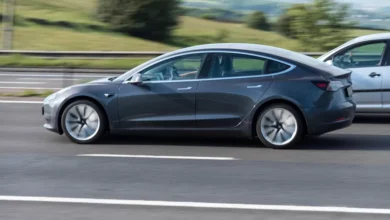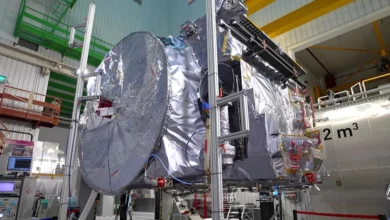ULEZ: London mayor lacks powers to expand zone, High Court told
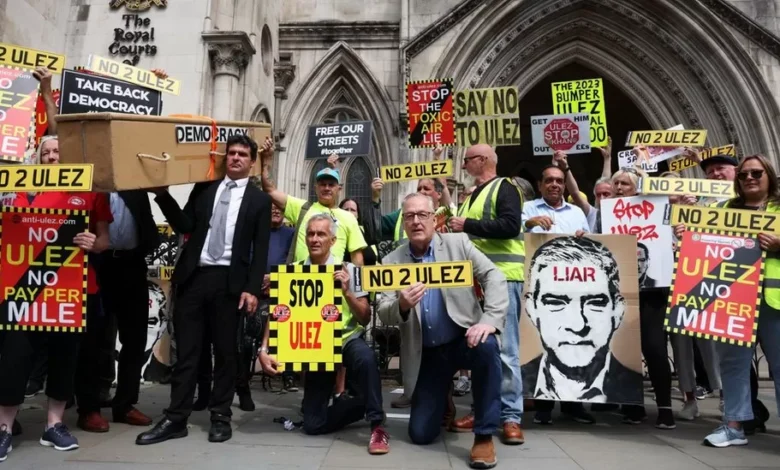
London’s mayor “lacks the legal powers” to extend the Ultra-Low Emission Zone (ULEZ), five Conservative-led councils have argued at the High Court.
Craig Howell Williams KC, for the councils, also said Sadiq Khan’s plan to extend the zone was to create a “master charging scheme” for London.
The Labour mayor’s legal team said the scheme was “entirely lawful” and that it would improve London’s air quality.
Currently ULEZ covers the area between the North and South Circular roads.
If the expansion goes ahead as planned on 29 August, the zone would be three times its current size with new borders reaching Buckinghamshire, Essex, Hertfordshire, Kent and Surrey.
The ULEZ scheme currently requires people who drive in non-compliant or more polluting vehicles to pay a daily charge of £12.50 on days these are driven within inner London. Motorists face a maximum £160 fine if they do not pay.
Lorries, buses, coaches and heavy vans which are non-compliant are charged £100 under a separate low emission zone scheme, which already covers most of London.
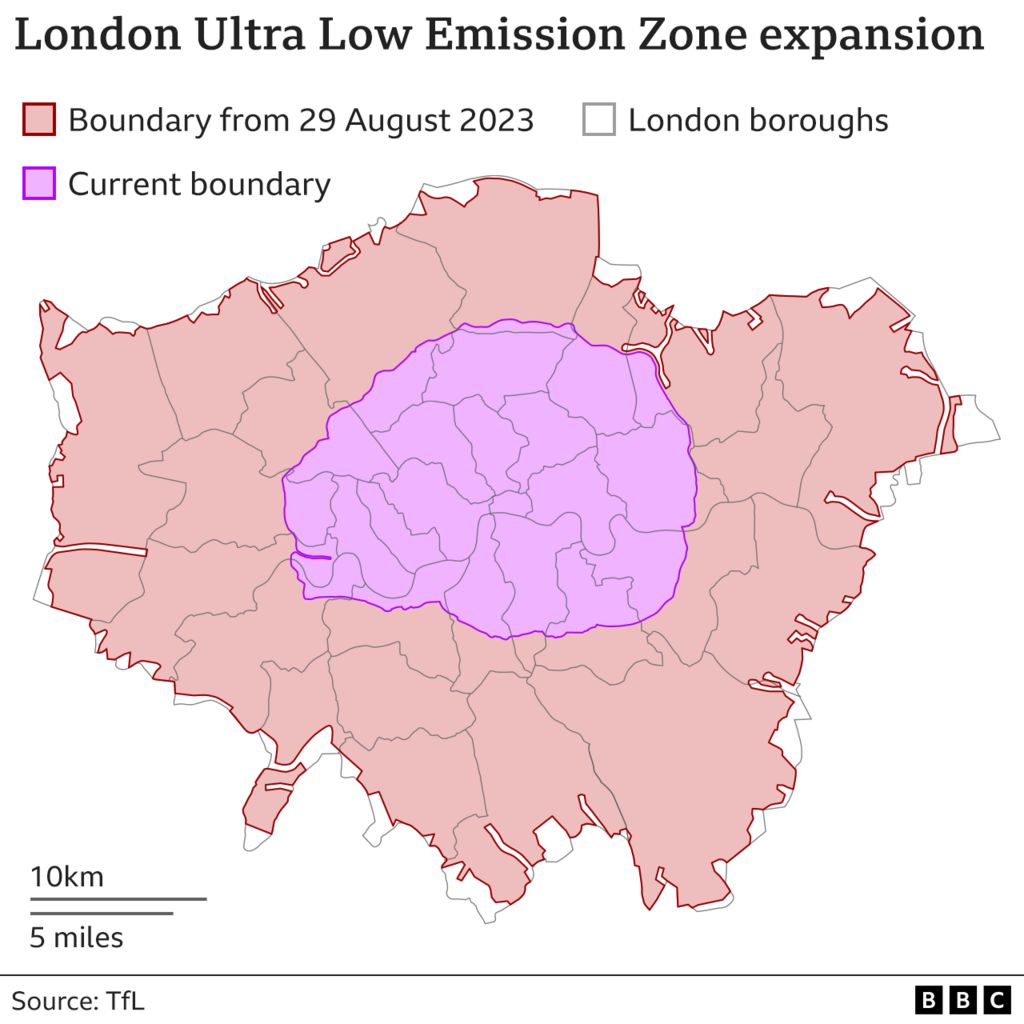
Vehicle compliance rate
Claims that nine out of 10 cars already complied with ULEZ standards in outer London were based on data from just 106 cameras, the High Court heard.
The barrister for the councils said people should have been told this during the consultation last year. “This is key information which was not available”, said Mr Howell Williams.
He added that consultees might have concluded that forecast compliance rates from such a small number of cameras were “unlikely to be reliable given the size of the area being covered”.
Transport for London (TfL) submitted information about its ANPR camera network ahead of the judicial review proceedings. It shows that while there are 1,156 cameras gathering data in the inner London “middle ring” of ULEZ, there were just 106 cameras covering the whole of outer London on which it based its claims about compliance.
In the lead-up to the judicial review, the BBC repeatedly requested data from the Mayor of London and TfL on how the 91% compliance rate was calculated.
Both bodies refused to make this information public.
Ben Jaffey KC, representing the mayor and TfL, said the use of ANPR camera data was “one of several different inputs into a complex model of compliance rates, traffic, emissions and air quality”.
The barrister said TfL had been “clear” that camera coverage was “not comprehensive” and that for “full enforcement” it would install 2,750 more cameras.
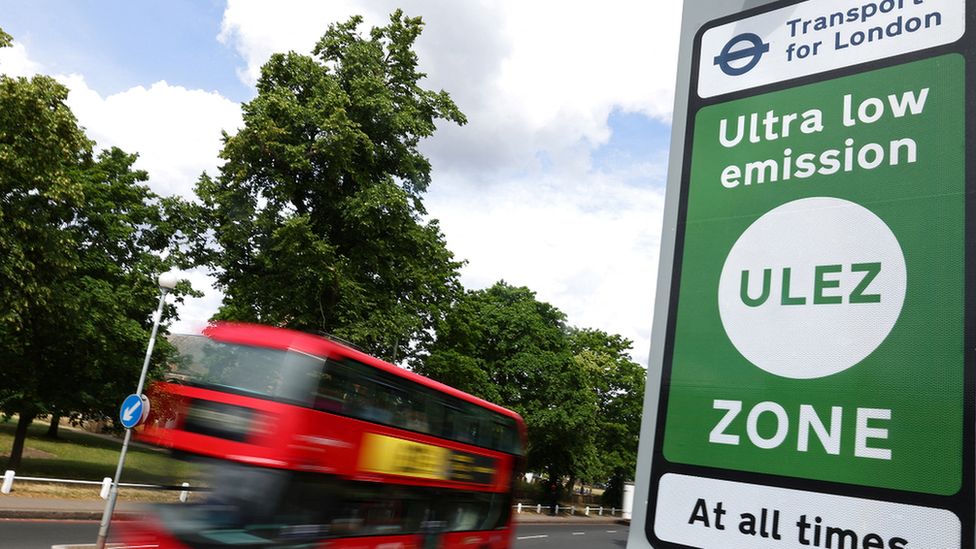
Mr Howell Williams, acting on behalf of Bexley, Bromley, Harrow, Hillingdon and Surrey councils, told the judicial review that Mr Khan did not have the legal right to vary existing regulations in this way.
In written arguments, he added that the mayor and TfL’s approach would “bypass legal safeguards”, which were “designed to ensure that any new charging scheme was properly considered before coming into effect”.
The councils’ barrister said material provided when gathering views on the plans was “unintelligible” and gave a “confused picture”.
As a result, “intelligent responses were prevented”, Mr Howell Williams said.
The barrister also said the mayor’s plans for a £110m scrappage scheme, to provide grants to people to support them getting rid of non-compliant vehicles, were also unlawful because a “buffer zone” for “non-Londoners” affected by the extended charging zone was not considered.
Mr Jaffey said in his written arguments that the “primary objective” was “to improve London’s air quality, in particular reducing nitrogen oxides and particulates”.
The barrister said Mr Khan’s decisions would help to get London’s air quality closer to legal limits, in the areas where it is exceeded, and for World Health Organisation (WHO) guidelines to be reached everywhere.
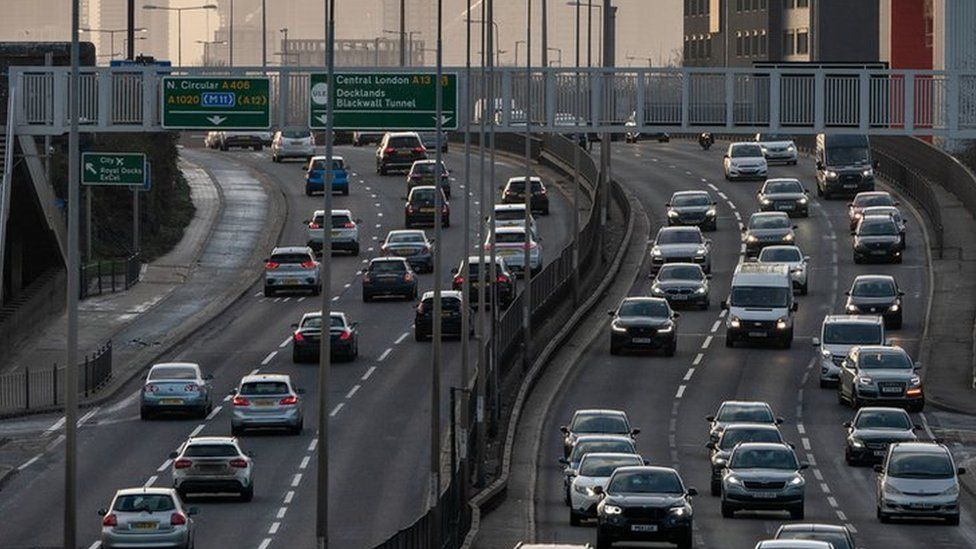
He added that over the past 16 years, London’s mayors had used powers to order changes to emissions zones rules in the capital on many occasions.
“It would be bizarre if orders could not be amended to improve emissions standards as required,” the barrister said, adding that “one might expect it to have come up before now”.
Mr Jaffey went on: “The consultation materials were clear, detailed and provided more than ample information to enable an intelligent response and satisfy the requirements of fairness for consultations.”
He said Mr Khan had “personally considered” the level of funding available for the scrappage scheme and had “rationally” concluded it would mitigate some of the impact of the ULEZ expansion.
Mr Jaffey added: “Where there are finite public funds, if there are good reasons for giving preference to Londoners, that inevitably means not giving others the same benefit. These are discretionary public spending decisions.”
The hearing, before Mr Justice Swift, is due to conclude on Wednesday and the judge is expected to give his ruling at a later date.





